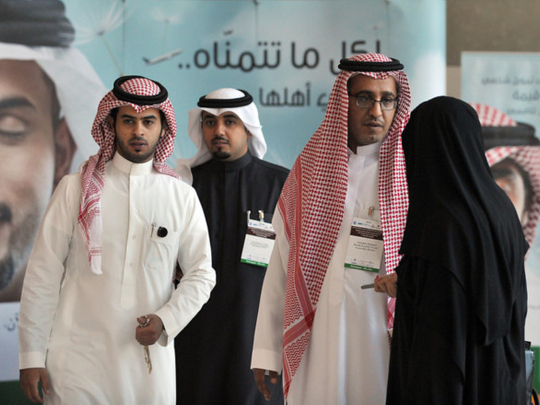
Dubai: Saudi Arabia’s newly announced investment programme will help the country achieve a big leap in economic diversification, according to Bank of America Merrill Lynch (BoAML).
“We estimate the overall investment programme announced by the authorities aims to increase domestic non-central government investments from the SAR4 trillion ($1.1 trillion) level realized over 2009-2018 to SAR10 trillion over the next decade, an ambitious 150 per cent increase. This confirms the focus on economic diversification and a shift in the growth model towards capital accumulation,” said Jean-Michel Saliba, Mena economist/strategist at BoAML.
Public sector to lead
Saudi public sector giants such as the Public Investment Fund (PIF), Saudi Aramco and Sabic are mandated to lead the investment programme.
While the programme is expected to boost domestic private sector investments up to 20 per cent, analysts said right incentives key to boost investments and incentives to support domestic investments by large companies could be key to minimize costs within the ‘Shareek’ SAR5 trillion investment partnership programme.
“Incentives offered to support domestic investments by large companies could sweeten participation in the voluntary scheme. However, the returns on possible reinvestment of corporate savings into government-mandated investments, rather than its distribution as dividends to shareholders, could depend on the projects' financial sustainability profile,” said Saliba.
The three main initiatives include the ‘Shareek’ programme, the Public Investment Fund (PIF) investment programme, and the to-be-announced National Investment Strategy (NIS).
The Shareek
The Shareek programme seeks to partner with the private sector. Saudi Crown Prince Mohammed bin Salman launched the programme in late March, as part of the broader investment programme. Shareek is meant as a partnership of the government with the private sector to increase domestic investments and support economic growth. The goal of the Shareek program is to unleash domestic investments of SAR5 trillion (166 per cent of 2021GDP) over the period to 2030.
PIF investments
The PIF contribute SAR3 trillion in investments over the same period. The PIF domestic investments averaged SAR62 billion over the period 2016-20 and has been targeting annual investments of SAR150 billion over the period 2021-2025 under its recent program. Extending this pace of annual investments to 2030 would bring cumulative investments by the PIF to SAR1.5 trillion over the 2021-2030 period.
National Investment Strategy
The to-be-announced National Investment Strategy (NIS) will also generate SAR4 trillion in investments over the same period, which is estimated to include an ambitious target of SAR2 trillion in Foreign Direct Investments (FDI). It is unclear if the National Investment Strategy targets investments by the private sector, the public sector or a mix of both.
Government spending spike
Indications are that central government spending is likely to go up over 2021-30 period, exposing the budget to oil price volatility in the event of a loosening in fiscal discipline over 2021-23.
Saudi Crown Prince Mohammed bin Salman separately indicated that government spending would reach SAR10 trillion over the period to 2030. This may suggest that government spending would not decline much from current levels, leaving uncertain the extent of fiscal consolidation beyond 2023. The medium-term fiscal path announced in the 2021 budget indicated that spending is targeted to decline yearly by an average of 4.1 per cent over 2021-23 to stand at SAR941 billion in 2023.
Funding
The Shareek programme does not mention funding avenues for the investment targets. Although the funding of Shareek remains uncertain, analysts think creative incentives to banks and private investors could resolve the issue greatly.
“If banks are asked to reduce dividends to allow greater lending, incentives could include access to low-cost and long-duration deposits (to augment margins), loan guarantees against more risky Small and Medium-sized Enterprises (SME) debt, and potential regulatory concessions,” said Saliba.
Aramco factor
Saudi Aramco at the centre of the investment programme is key to funding. Sell-downs of Aramco or PIF stocks could help fund investments.
Aramco could easily maintain and even enhance the dividends for minority shareholders, while limiting the government portion of the dividends in favour of higher investments. Aramco's robust balance sheet is likely to allow it to accommodate additional leverage to support any government-sponsored projects, especially if accompanied with the right tax incentives and support programmes.








